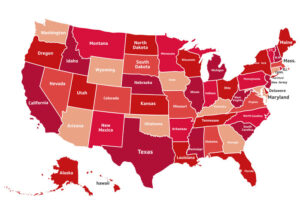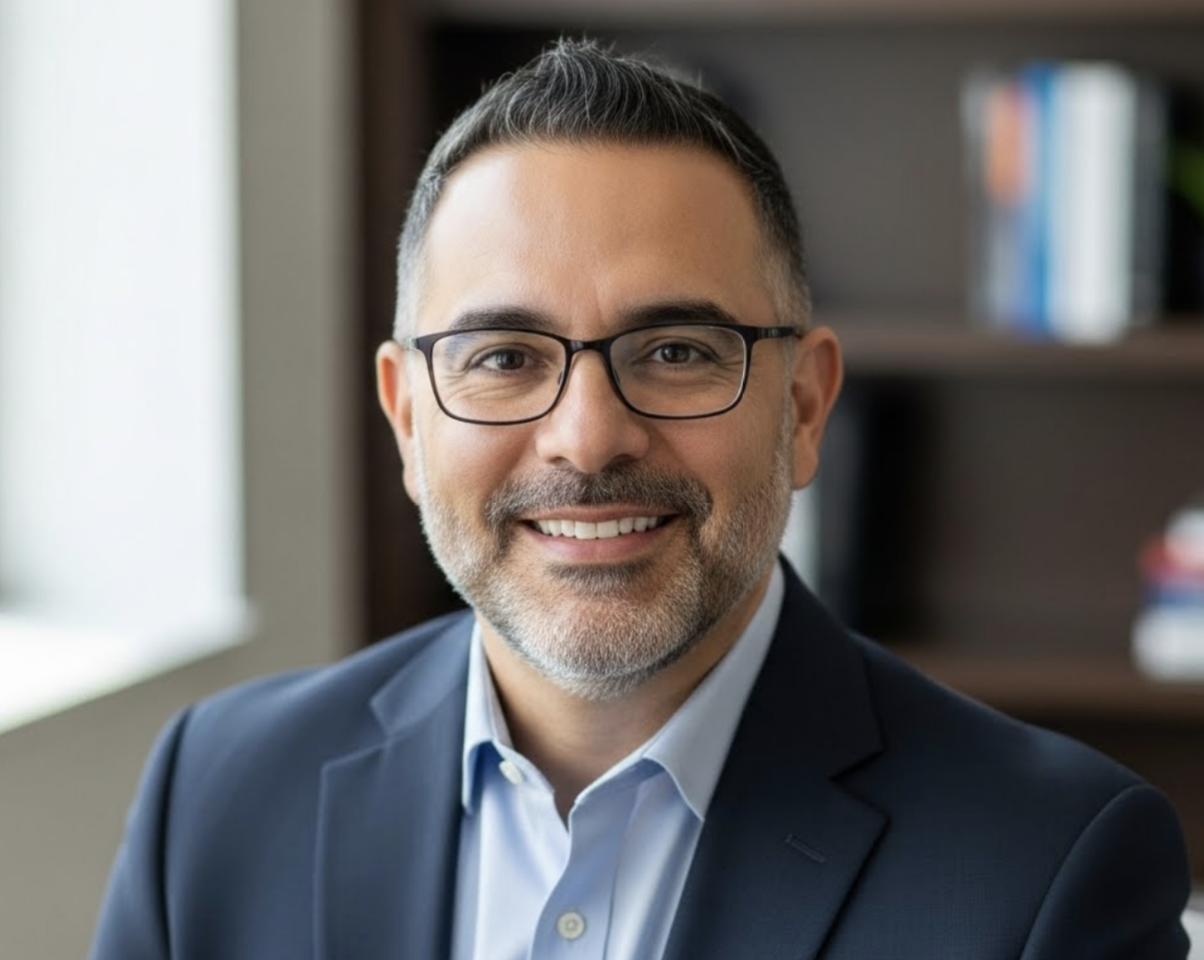Continuing Education for Addiction Counselors
Yes, continuing education is mandatory for license renewal in all 50 states. You’ll typically need 20-30 hours annually through approved providers. Online courses count in most states, and costs range from free (NAADAC members, government resources) to $300+ annually for commercial providers.
You’ve just passed your certification exam, accumulated over a thousand hours of supervised practice, and graduated from a demanding program covering everything from neurobiology to the pharmacology of controlled substances. Now it’s time to put it all to work.
But the reality on the ground doesn’t always match what you learned in the classroom.

You’re sitting in a cramped office with someone whose life is unraveling. They can’t stop drinking. Your textbook motivational interviewing techniques aren’t landing. Your next appointment starts in ten minutes. There’s a baby crying in the waiting room, and you’re pretty sure the guy lingering outside the front door is a dealer targeting your most vulnerable clients.
For all the education and training you completed to become certified, you’ll still encounter reminders throughout your career that there’s more to learn. The field evolves. New substances emerge. Treatment methods improve. Your clients’ needs shift.
Fortunately, that ongoing process of education and adaptation is built right into your career through continuing education.
Why Continuing Education Is Critical for Addiction Counselors in Every Specialty
Addiction is a disorder that doesn’t stand still. In every era, there are new substances, new temptations, and new cultural pressures.
If you had told an addiction counselor in the cocaine-fueled 1980s that by the early 2000s, pharmaceutical-grade prescription opioids would define America’s drug epidemic, they would have thought you were crazy. It would have been almost impossible to imagine that legions of people would be dying from fentanyl, a drug originally designed as a medical anesthetic.
Social media and gaming addictions represent new frontiers that counselors have to adapt to treating.
At the same time, treatment methods are constantly evolving and improving. Tell that same 1980s-era counselor that magnetic beams can effectively treat nicotine addictions today, and they might ask what you’d been smoking. But TMS (Transcranial Magnetic Stimulation) is now a recognized treatment with mounting evidence of its effectiveness.
All these developments have a tangible impact on the day-to-day demands and capabilities of professional addiction counselors. Part of being a professional is keeping up with those developments. That’s where continuing education comes in.
What Is Continuing Education for Addiction Counselors?
Continuing education refers to mandatory, ongoing learning relevant to your performance as an addiction counselor. It’s mandated by state credentialing agencies and by organizations that offer counseling certifications, such as NAADAC, the Association for Addiction Professionals.
You may also see continuing education listed as CEUs (Continuing Education Units) or PDH (Professional Development Hours).
Typically, those requirements take the form of a specific number of hours in certain approved activities that must be completed before your credential can be renewed. Most states settle somewhere around 20 or 30 hours per year. NAADAC- and IC&RC-aligned credentials require 20 hours of continuing education annually.
It’s common for CE to be required across the board—for every credential, from the humble peer support specialist to licensed and certified Master Addiction Counselors.
Even in the handful of states that don’t require CE for license maintenance, most addiction counselors are dedicated enough to seek out ongoing training on their own.
The Mechanics of Official Continuing Education

Most official agencies make it easy enough to look up approved CE providers and activities, and they clearly outline required hours. But how do you prove that you met all the requirements to have your credentials renewed?
This varies from organization to organization. Some have gone high-tech and track CE online through platforms like Certemy or CE Broker. You may upload digital certificates, or they can be submitted directly to your account by connected providers.
Many organizations, including NAADAC, are moving to an audit model for CE compliance. In these systems, you don’t have to submit proof of training upfront, but you do have to retain official records. Some percentage of renewals (10 percent for NAADAC, for instance) are randomly selected for audit each year, and those individuals will have to produce their records or their certification won’t be renewed.
Other boards, like the Pennsylvania Certification Board, take a hybrid approach. You’re required to submit a list of your trainings for recertification, but only retain proof of attendance in case questions come up later.
Continuing Education Would Make a Lot of Sense for Your Counseling Career, Even if It Weren’t Mandatory
There’s a big regulatory aspect to continuing education, it’s true. But many addiction counselors enjoy the benefits of ongoing study in other ways as well.
The requirements of your license or certification will tell you what you need in your continuing education. But applying that knowledge can go a long way toward improving your professional skills and delivering better outcomes for your clients.
As you’re doing right by your clients, you can also be doing well for yourself. Continuing education gives you the skills and knowledge employers want to see. You can build a body of professional expertise that will take you into higher-paying positions and leadership roles in your organization and community.
Addiction Counseling Continuing Education Comes in a Wide Variety of Formats

Although most people think of CE in terms of after-hours lectures in community college classrooms or conference presentations with weak coffee and a bad sound system, the fact is that many activities can count toward CE for most organizations.
The specifics can vary from group to group. But in general, you’ll find several different categories of learning or teaching that can be counted as a CE activity:
- Traditional Classroom Training – Once the most common kind of continuing education, this in-person, instructor-led training is on the decline but still offers face-to-face updates on new developments in addiction therapy. Some states require a significant percentage of CE hours to be conducted in person or in real time.
- Online Webinar Presentations/Training – The ease of access and the ability to time-shift video viewing or complete coursework are making online training seminars among the most popular sources of CE today.
- Self-Study Programs – Whether offered online or just through a remote format, self-paced study is often considered acceptable for CE training.
- Conference Attendance – Attending a major conference sponsored by a state or national addiction therapy organization is always an opportunity to network and acquire knowledge, and it is typically counted as official CE.
- Certificate Programs – Upgrades to your professional certification by earning a new specialty certificate or a higher-level counseling credential will usually be awarded CE hours.
- Teaching or Presentation – You can often learn just as much from training others as you would from training yourself. So teaching coursework on addiction issues or giving presentations at conferences usually come with CE credits.
- Professional Publication – Similarly, the process of researching or developing new thoughts in the field for publication in journal articles, scientific papers, or other industry platforms can be credited toward CE.
- Degree or College Classes – Since less structured and formal coursework is already awarded CE, it’s no surprise that more in-depth, formal study toward a degree or through for-credit courses is also counted. This allows you to double up by advancing your professional credentials with higher-level degrees while keeping your certs current.
- Attending Board Meetings – National certifications don’t include this option, but many state-level agencies offer it—credit for attending meetings of the licensing board itself.
This is hardly an exhaustive list, and the devil is in the details. You’ll need to double-check the specific requirements tied to your credentials.
Are Online Trainings Accepted for Addiction Counselor Continuing Education?

Just like online training and degree programs are making waves in the world of initial certification for addiction counselors, the ease and accessibility of online CE is shifting the entire process of racking up renewal hours for those credentials.
Unfortunately, there isn’t a single set of standards for how states are incorporating this new option in their requirements. For some, such as Louisiana, online CE hours are accepted at about the same level as in-person CE. In others, like Idaho or Iowa, only half of your hours can be through remote courses.
Places like Alabama are moving past the controversy by focusing on what really matters in CE. In 2011, the Alabama Board of Examiners in Counseling decided to allow online training, but at least 75 percent of the CE hours, online or off, must include real-time participation. They prioritize interaction, dialogue, and Q&A as part of training programs, but don’t distinguish between in-person and technology-based formats like video conferencing. That may be the future of online CE as other states work out how to make training hours most effective.
Many Addiction Counselors Have More Than One Set of CE Standards To Keep up With
Those details also lead to one of the most common questions about continuing education in addiction counseling: where can you find CE options that meet the standards for all your certifications?
That’s because most addiction counselors, at least after a few years of practice, earn multiple certifications. Most of them are tied to continuing education for renewals. But not all of them have the same view about what is and isn’t appropriate CE. Some may require CE while you’re on a temporary credential, or cut your total hours due if you’re licensed mid-cycle.
Some counselors even have multiple credentials issued by the same organization. You may be able to apply your CE to all of them, or you may be required to fulfill the requirements separately.
They may also demand a different number of credits or even have different renewal periods to account for. Or, even if they average out at 40 CEUs per two-year renewal period, one organization might require you to actually clock 20 hours per calendar year. At the same time, the other doesn’t care if you wait until the last minute and land all 40 a month before the paperwork is due.
How You Can Meet Your Addiction Counseling CE Commitments Most Efficiently
For example, a Wyoming Licensed Addictions Therapist (LAT) may also hold a NAADAC MAC (Master Addiction Counselor) certification. Wyoming requires 45 contact hours of continuing education every two years, but only 15 of those must be in addiction-specific training.
That challenge can be met in two ways.
One option is to treat each obligation separately and fulfill the requirements on its own terms. So if you needed 40 hours for your NAADAC MAC, you could obtain that from NAADAC-approved providers in the two-year window. Separately, you could stack up your 45 hours from almost anywhere, since Wyoming doesn’t have stringent rules about continuing ed providers.
Most counselors, however, opt for another path. Since any NAADAC-approved coursework will satisfy Wyoming requirements, they’ll take the NAADAC-approved courses and use them for both credentials. Further, they’ll make sure that 3 of those hours will be in ethics and another 3 in suicide assessment, since those are also obligations needed for the LAT, though not the MAC. In the end, they’ll only need to add an additional 5 hours to renew the LAT.
When an Hour Isn’t an Hour for Continuing Ed

Not only do various organizations not always agree on providers or timelines or other standards in continuing ed, but it’s pretty common to have different definitions for something you might have thought was pretty cut and dried: what exactly is an hour of education?
NAADAC requires that one hour of education will equal one continuing education credit. So is one contact hour of continuing education. But a CEU (continuing education unit), or an academic education unit, is equal to 10 continuing education credits. And one academic semester hour is equivalent to fifteen continuing education credits.
A contact hour is the actual time spent in structured learning, equivalent to 60 real-time minutes in class, a conference, or elsewhere.
A CEU (Continuing Education Unit) is considered equivalent to 10 contact hours, but may not actually involve 10 hours of real-time instruction. Similarly, the academic semester-hour equivalent should be understood as a rough estimate, not an exact breakdown of the time involved.
These are merely the NAADAC standards, however, and other organizations and agencies may apply their own rules. It’s essential to verify the actual hours and credit requirements for each of your credentials.
Of course, all this has to be balanced with your own needs and interests in advancing your career and expanding your knowledge. There are probably some areas of content that you’re interested in purely for reasons of personal growth, not just because they happen to line up with requirements. That’s perfectly fine. With a lot of options on the table and only around 20 hours required each year, you don’t need to be hyper-efficient in picking your coursework.
Addiction Counseling Continuing Education Content
That really underscores the fact that the content of those articles, training sessions, and presentations is also essential. Clearly, you’re not going to be able to count a class in artistic beadwork toward your addiction counseling credentials.
Most agencies have a pretty broad interpretation of what you can count, however. As long as it relates to the provision of healthcare, behavioral health, the science of addiction, or professional development, it’s likely to count toward your total.
Some organizations, however, get more specific. They may split your CE hour requirements into chunks and require that a certain number be completed in specific areas of interest. Those may include:
- Ethics training – This is probably the most commonly required element of most CE programs. Although it may be only a few hours, it’s essential to maintain high standards of discretion, professionalism, and respect among credentialed counselors.
- Cultural competency/diversity – The field of counseling has turned a corner in recognizing the role of respect and cultural sensitivity in delivering practical support, and many agencies keep the wheel turning by requiring hours for exploring cultural issues in addiction treatment.
- Legal and regulatory issues – Laws and regulations governing counseling and conduct in therapy change regularly, so some states may require a certain number of hours spent studying those updates that impact the profession.
- Population issues – In some states, addiction counselors may be required to receive some training toward dealing with specific populations, such as veterans or the unhoused.
- Mental health/suicide prevention – Co-occurring disorders are common with addiction patients, and we know that certain kinds of addiction are strongly associated with suicide risk. So many agencies mandate some level of ongoing training in dealing with mental health issues and suicide prevention.
- Trauma counseling – Trauma-informed therapy is becoming a significant method taught in many degree programs today, so it’s not surprising that some agencies are requiring counselors already in the field to keep up with the technique.
- Supervision – For counselors who are also supervisors, their requirements often include specific training related to improving their clinical supervision skills.
Considering Quality in Your Addiction Counseling Continuing Education

Of course, the content itself is one thing. The quality of the presentation and the information provided is something else. No organization that mandates CE wants you to rely on low-quality instructors or outdated content when you’re supposed to be maintaining your edge in information and skills.
So it’s also essential, apart from the format and content of continuing ed courses, that qualified instructors teach them and that appropriate, verified materials are used.
Every state agency or board has its own approach to evaluating CE providers and courses.
It’s worth taking a closer look at the process NAADAC uses to award coveted membership on its Approved Education Providers list, for example.
The requirements these organizations must meet are set by the National Certification Commission for Addiction Professionals. The guidelines for inclusion on the list are strict, running to 13 pages with 20 different articles’ worth of standards. They cover everything from instructor qualifications to what may and may not be claimed in course advertisements.
It requires courses to provide participants with an evaluation and clearly outlines course attendance verification that can be used as proof for continuing education purposes.
What Does Addiction Counseling Continuing Education Cost?
High-quality education costs money. But there are different ways of paying for that training. The funding doesn’t always have to come right out of your pocket.
Organizations like NAADAC and SAMHSA (Substance Abuse and Mental Health Services Administration), as well as their state-level equivalents, provide some addiction counseling training completely free of charge. This type of subsidized training is considered a public benefit. It may be covered by grants and other charitable funding.
You might also be able to get free continuing education from or through your employer. In many states, large employers can get certified as approved training providers themselves. In-house education seminars you get paid to attend can count for renewal requirements.
But almost all addiction counselors end up paying for at least some of their own CE. That may take the form of conference registration and attendance, college tuition costs, or direct payment to commercial CE providers.
Many of the larger providers take some of the complication out of calculating all these costs and paying on a class-by-class basis by offering subscription plans. With these, you just cut a check once a year for a fixed amount. Then you can pick from a menu of the available classes whenever you need them.
The Importance of Approvals in Addiction Counseling Continuing Education

Various organizations address the challenge of ensuring your CE meets quality standards by pre-approving specific groups as accepted providers.
Fortunately, there’s typically a wide range of these pre-approved providers. In many cases, even if you get CE from another source, you can go through a process to have it recognized.
The pre-approval process can be more specific for certain required content areas. Texas, for example, has a separate list of approved human trafficking training courses for meeting the required class on that topic needed during each renewal period.
Accredited colleges and universities are often recognized as approved continuing education providers by state certification and licensing boards.
Other organizations extend their approvals to other organizations’ approved providers. For instance, Texas’s Health and Human Services Commission may accept CE providers approved by other Texas professional boards, such as the Board of Examiners of Marriage and Family Therapists or the Board of Social Work Examiners. Other state and federal agencies also commonly respect one another’s approved provider lists.
It’s also very common for state licensing bodies to accept CE providers on the NAADAC list. For IC&RC, which doesn’t directly approve any CE providers, state-affiliated boards may establish their own lists of approved providers.
Some state boards, like the Arkansas Substance Abuse Certification Board (ASACB), accept any formal substance abuse training approved by any IC&RC member board or national accreditation body.
In some cases, the process is actually more specific. Boards may not give a blanket approval to a provider, but only to specific courses they offer. More rarely, some boards may specifically exclude specific courses or providers that don’t meet their criteria.
National CE Providers Make it Easy to Find Approved Addiction Counselor Continuing Education
It’s hard to find one-stop shopping for continuing education services in the addiction counseling world. With all the different levels, jurisdictions, and types of certifications available, there’s rarely one single resource that you can rely on to find all the training you need to keep current.
But there are at least some ways you can minimize the time you spend looking and maximize the education you get along the way. We’re here to help you find them.
You can approach the question of getting approved CE credits from two directions:
- Narrow down the CE classes and topics you’re most interested in, then confirm they will count toward your recertification requirements
- Start from the list of approved providers for your credentials and find courses you’re interested in from those lists
There’s nothing magical about either approach, but one or the other may make more sense depending on your credentials. For example, in states that are most stringent about approvals, it makes sense to start with providers off the official list. In states that don’t have formal approvals but only guidelines for acceptance, you can look to reputable providers and explore more freely.
We’ll list some resources you can use in either case.
The Association for Addiction Professionals
If there is one single place to start your search, it has to be NAADAC, the Association for Addiction Professionals.
First, NAADAC itself offers training that is almost universally accepted by other certification boards:
- NAADAC Independent Study Courses – A set of comprehensive references available for self-study leading to nationally-approved CE credits
- NAADAC Free Webinar Series – Addiction-specific webinars that are free for NAADAC members, which offer CE when combined with an online quiz module
- NAADAC Certificate Programs – Continuing your specialty studies to earn certificates such as Practice Management, Administration, and Operation in the SUD Field not only enhances your professional credentials but also can go toward meeting CE requirements for your current credentials
- NAADAC Specialty Online Trainings – Online webinar presentations that focus on specific populations or treatment techniques to extend expertise in the field while earning a CE certificate
Next, many NAADAC organizational activities may count for continuing education, both for their credentials and others. These include:
- Publication in the NAADAC Magazine Advances in Addiction & Recovery earns a CE credit
- Attendance at the National Annual Conference, the Advocacy in Action Conference, or regional or state affiliate conferences may all result in CE credit.s
Finally, NAADAC maintains a master list of all third-party educational providers approved by NCC AP. You can search the database by provider name or zip code. More than 40 state boards of addiction counseling accept NAADAC-approved courses.
NAADAC-approved providers will have a provider number issued by the organization that you can double-check on the NAADAC approvals website.
Finally, NAADAC provides a comprehensive listing of its own approvals from various states, licensing boards, and other national organizations, so you can quickly check whether their credits are accepted where you need them.
Federal Government Addiction Continuing Education Resources
Government agencies often offer free or low-cost opportunities for widely recognized CE credits. One of the major centers for locating these resources is SAMHSA’s Addiction Technology Transfer Center, which compiles presentations, webinars, print materials, and in-person training organized by 10 regional centers nationwide.
National Institute on Drug Abuse CME/CE Activities – NIDA offers resources directly for continuing education, often specifically aimed at the current opioid epidemic, but also linking out to further resources at universities and major professional associations.
What About Continuing Education Training for Addiction Counselors Who Are Licensed in Other Professional Fields?

Addiction issues cover a lot of territory and cause problems that surface in every aspect of life and society. It’s not surprising, then, that addiction counseling surfaces in a lot of overlapping professions like social work, mental health counseling, and marriage and family therapy. There are even states with multiple certification boards for addiction counselors, each with separate credentials and CE requirements.
Each of these fields has its own educational standards and, usually, separate state licensing requirements. Each of them also requires continuing education to maintain competency and credentials, too.
So you will also find crossover in continuing education providers and approvals between those groups. NAADAC, for instance, is approved by the Association of Social Work Boards to provide CE. And plenty of state addiction agencies recognize CE supplied or approved by NBCC, the National Board for Certified Counselors.
Between them, it’s easily possible to get plenty of high-quality addiction-focused continuing ed no matter what license you hold.
Private and Other Professional Association Continuing Education Providers
There is an entire cottage industry of continuing education providers in every state and across the country, dedicated to helping addiction counselors and other behavioral health professionals build their knowledge and skills.
There are too many commercial providers in this role to list, and their approval status varies by state, so you have to double-check them anyway.
But there are other related professional nonprofit organizations that either exist within the field of addiction counseling or in closely related fields, which are commonly accepted by addiction counseling boards as sources of continuing education. They include:
- National Board of Certified Counselors (NBCCC)
- The National Behavioral Health Association of Providers (NBHAP)
- Commission on Rehabilitation Counselor Certification (CRCC)
- American School Counselor Association (ASCA)
- American Psychological Association (APA)
- Association of Social Work Boards (ASWB)
It’s also worth exploring state and local affiliates of those organizations. They may sponsor their own training and are likely to be particularly attuned to the challenges and topics most relevant to your practice.
State-Level Resources of Addiction Counselor Continuing Education

The surest way to ensure your CE hours are accepted is to choose pre-approved sources listed by your state board or licensing agency, of course.
While not all states take the step of creating approved provider lists, many do. We’ve reviewed and posted links to those lists for states with particularly stringent approval processes, complex compliance systems, or high levels of addiction counselor employment.
Alaska Addiction Counselor Continuing Education Resources
Alaskan addiction counselors face unique challenges in finding continuing education resources. The community and ACBHC have also developed unique solutions, such as RADACT, the Regional Alcohol and Drug Abuse Counselor Training Program. It’s also a state where online and correspondence courses are the rule rather than the exception. The state also isn’t overly strict about approvals but does offer a list of recommended resources for counselors to tap for CE training.
California Addiction Counselor Continuing Education Resources
As the state with far and away the highest number of substance abuse, behavioral disorder, and mental health counselors, as well as a slightly strange licensing setup, California fuels a constant demand for continuing education in the addiction treatment industry.
That’s because the state has three certification organizations, each with different requirements, approval standards, and ways to track your CE. All three of those organizations maintain their own pre-approved provider lists:
- California Consortium of Addiction Programs and Professionals Approved CE Providers
- California Association for Alcohol/Drug Educators Approved CEU Providers
- California SUD Counselor Certification CEU Provider Directory
You’ll find plenty of overlap, but not so much that you can assume that all will accept every provider approved by one California board!
Connecticut Addiction Counseling Continuing Education Resources
The Connecticut Certification Board has taken an interesting path to approving continuing education providers. While you can consult a list of approved providers on the board’s website, CCB has also partnered with Trusted Provider Network (TPN) to offer a national network of approved providers.
Florida Addiction Counselor Continuing Education Resources
The Florida Certification Board also governs a large number of counselors and has stringent standards for CE providers. Because the organization also certifies child welfare and mental health professionals, you can’t assume that any course from any provider on their list will be accepted for addiction counselor renewals. You’ll need to ensure the coursework aligns with your credential.
FCB also recognizes college coursework or CE completed under the supervision of other IC&RC member boards.
Georgia Addiction Counselor Continuing Education Resources
Georgia’s Alcohol & Drug Abuse Certification Board (ADACBGA) is generous about accepting CE from most recognized accreditors for addiction counselor education, so you shouldn’t have trouble with a NAADAC, NASW, or NBCC-approved program. But each of those will also be subject to additional scrutiny before being allowed, so the organization publishes a list of approved providers with ADACBGA provider numbers that are accepted without question.
Iowa Addiction Counselor Continuing Education Resources
As noted above, Iowa requires at least half of your renewal hours to be earned through in-person learning. As an added incentive to stick with traditional courses, you’re charged a $15 CEU approval fee for online learning submissions. While the board doesn’t produce a master list of providers or courses that are approved for CE, it does have a unique way to help you clock those required in-person hours. IBC puts out an annual list of approved continuing ed classes (Zoom attendance is allowed) that don’t take that additional fee:
Louisiana Addiction Counselor Continuing Education Resources
In many ways, Louisiana has a relaxed approach to continuing education for addiction counselors. Unlike many states, all 48 hours required can be completed through remote or home study. On the other hand, the state regulatory authority does pre-approve providers. NAADAC doesn’t make the list. All other CE must have firm connections to substance abuse and addiction counseling.
Michigan Addiction Counselor Continuing Education Resources
MCBAP (the Michigan Certification Board for Addiction Professionals) puts ongoing education for counselors into three buckets:
- Specific: Courses focused on alcohol, tobacco, or other substance abuse issues
- Related: Coursework related to SUD treatment, such as skill-building, other addiction issues, or therapy methods
- Not Applicable: Possibly required training in areas like cybersecurity or administration, but which do not apply to SUD counseling
At least half of your renewal hours must be specific, while the rest may be drawn from related topics. The board maintains a list of pre-approved providers offering classes of all types.
New York Addiction Counselor Continuing Education Resources
New York has notably strict standards for both certification and renewal as a CASAC (Credentialed Alcoholism and Substance Abuse Counselor). Still, it also devotes significant resources to helping people meet them. The Office of Addiction Services and Supports (OASAS) has a comprehensive website that not only points you toward free online and in-person training opportunities but also lists a complete catalog of certified trainers who deliver OASAS-approved curricula.
New York is also home to the New York Certification Board from InUnity Alliance, which maintains their own approved lists and renewal requirements. Training not on their lists is not accepted as CE. They separate their approvals into categories such as veteran-supported recovery, family recovery, and medication-supported recovery.
NAADAC trainings are also accepted, with some restrictions, by both boards.
Texas Addiction Counselor Continuing Education Resources
The Texas Certification Board oversees almost 20 different credentials in mental health and addictions counseling, most of which require continuing education for recertification. Strict standards, over 50 pages’ worth, govern providers so you won’t pick up your hours just anywhere. In fact, standards are so strict that not every course offered by authorized providers is necessarily accepted.
Fortunately, TCB regularly publishes an updated list of approved learning providers, although you will still have to confirm that the individual courses they offer comply.
- Texas Certification Board Approved Learning Providers
Some States Are Starting to Outsource Their Continuing Education Approval Options
Some state boards maintain strict standards for continuing ed and require you to obtain it from approved providers, but no longer provide updated lists of who those providers are. Instead, they outsource the process to third-party organizations like CE Broker.
These companies not only automatically track and submit your continuing ed records when it’s time to renew, but they also connect counselors with CE providers that match renewal requirements. So if, for example, you’re an LCDC in Ohio, you can get your training by popping over to the CE Broker Search page, entering your state and credential, and finding a list of options.
By signing up through the system, you’ll also be telling that provider they can report your credits directly back to your CE Broker account. They’ll be sitting there, tallied and verified, when you’re ready to submit your renewal.
How Your College Addiction Counseling Education Can Impact Your Continuing Education

You probably already noticed that college coursework can often count toward CE requirements for many credentials. That makes life a lot easier for counselors who are working their way up the educational ladder toward the top tier of their profession.
It can already be tough to hold down a regular counseling position while keeping up with college demands. But life gets a little easier when you can use that coursework to not only advance toward another degree (and the higher-level license it can unlock) but also keep your current certifications up-to-date.
In some states, a higher degree level can also reduce the amount of continuing education you’ll need to provide in the future, too. In the same way that a higher-level degree can reduce the experiential requirements for credentials in many states, that degree can drop the amount of CE you have to provide to maintain those credentials.
In Texas, for example, the typical LCDC (Licensed Chemical Dependency Counselor) is required to complete 40 hours of continuing education during each two-year licensure period. That’s right in line with the typical 20 hours per year that many states require.
But if you hold a master’s in addiction counseling or other advanced degree, that number drops to only 24 hours—12 hours per year, cutting your time commitment almost in half.
Frequently Asked Questions
What Is Continuing Education for Addiction Counselors?
Are Online Trainings Accepted for Addiction Counselor Continuing Education?
What Does Addiction Counseling Continuing Education Cost?
Do I Need a Pre-Approved Continuing Education Provider?
Can I Bank CE Hours for the Next Renewal Period?
Can I Wait Until My Credential Renewal Year to Earn All My CE Hours?
Can I Use a Live Webinar for In-Person Hour Requirements?
Will My Employer-Sponsored Training Count Toward CE?
Key Takeaways
- Continuing education is mandatory for addiction counselor license renewal in all 50 states, typically requiring 20-30 hours annually through approved providers.
- Online CE courses are accepted by most states, though some limit the percentage of remote hours or require real-time participation for credit.
- Free continuing education is available through NAADAC (for members), SAMHSA, state boards, and many employers who offer in-house training.
- NAADAC-approved providers are accepted by more than 40 state boards, making them a reliable starting point for multi-state counselors.
- College coursework toward higher degrees often counts toward CE requirements while simultaneously advancing your professional credentials.
- Higher degree levels may reduce ongoing CE requirements—in Texas, master’s degree holders need only 24 hours every two-year period, versus 40 for others.
- Always verify that CE courses apply to your specific credential and are offered by approved providers in your state to avoid wasted time and money.
Ready to Advance Your Addiction Counseling Career?
Pursuing a higher degree doesn’t just fulfill CE requirements—it opens doors to clinical practice, supervision roles, and significantly higher earning potential. Explore degree programs that align with your professional goals.
Salary Disclaimer: 2024 US Bureau of Labor Statistics salary and employment figures for Substance Abuse, Behavioral Disorder, and Mental Health Counselors reflect state and national data, not school-specific information. Conditions in your area may vary. Data accessed December 2025.






